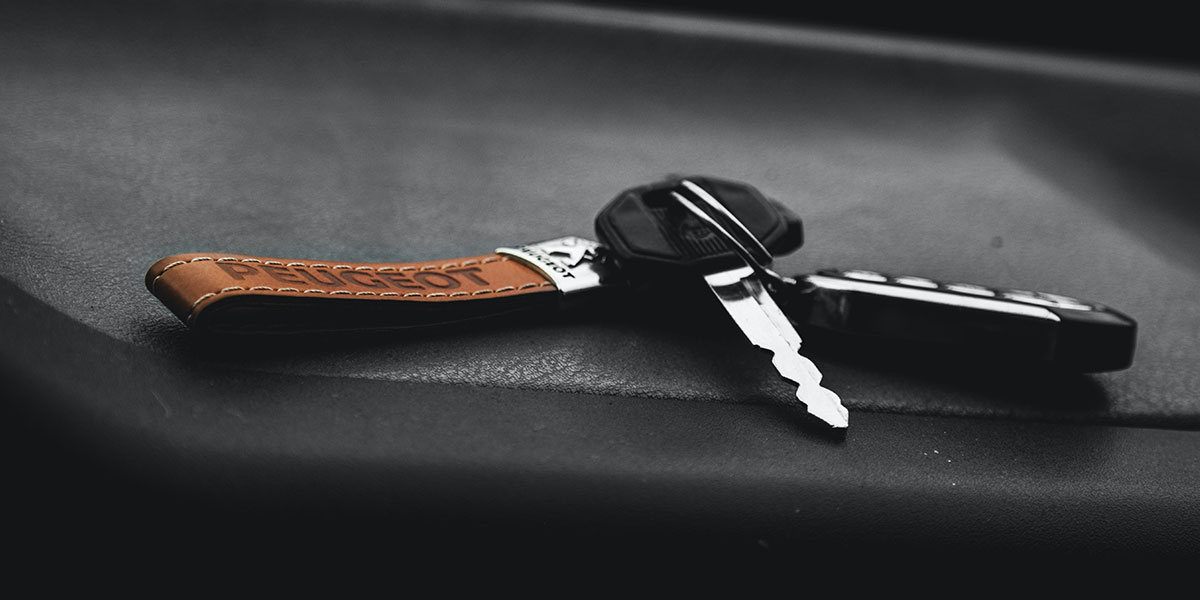In essence, when you’re leasing a vehicle, you’re renting the car with no ownership option at the end of term.
Financing a vehicle involves making monthly payments towards ultimate ownership.
Whether you’re a new driver scoping out options by which to fund your first set of wheels, or you’re business owner looking for clarity on the difference in leasing and financing a car, this guide’s here to help.
In fact, here’s a handy table breaking down the differences between leasing a vehicle vs financing it:
| Leasing | Financing | |
| Ownership | No – at the end of a lease, you hand back the keys | Options to own the car once all repayments (plus interest) are made in full |
| Costs | Low upfront costs compared to financing a car Lease cars are also often covered by a manufacturer’s warranty, saving you money on repairs/maintenance | Higher monthly payments Maintenance and repair costs, as you’re responsible for the vehicle’s upkeep |
| Flexibility | Less flexibility compared to financing – you can’t customise your vehicle, and you can face restrictions like mileage limits and penalties if you hand the car back with unreasonable wear and tear | Freedom to customise the vehicle as you want No mileage or usage restrictions (with some financing agreements) |
What does it mean to lease a car?
If you’re leasing a car, it’s like a long term rental. You’re making monthly repayments to the lender for full use of the car, which you then return at the end of the agreement.
One of the main attractions of a lease vs finance car is ownership. When you lease a vehicle, you return it at the end of term, giving you the flexibility to switch to a new car every few years.
What’s more, you can benefit from lower monthly payments when leasing a vehicle vs financing it. Plus, a lease car is often covered by a manufacturer’s warranty, meaning you won’t face maintenance or repair expenses.
However, with a leased car, you’ll also face mileage restrictions, and can be subjected to financial penalties if you return the car in less than good condition, or if you need to end the agreement early.
What does it mean to finance a car?
There are plenty of flexible, affordable car finance options for drivers with different circumstances and needs. Two of the most popular agreements are Hire Purchase (HP) and Personal Contract Purchase (PCP).
Hire Purchase (HP)
HP is one of the most popular and simplest kinds of car finance agreements. Your monthly repayments cover the entire cost of buying the vehicle, plus interest payments. You won’t face an optional balloon payment, so you’ll own the car outright at the end of the agreement. HP is an affordable and practical car finance agreement.
Personal Contract Purchase (PCP)
Personal Contract Purchase (PCP) offers low monthly payments, flexibility and the option to drive a new car more often. Unlike HP, at the end of a PCP contract, you have the option of making a final balloon payment to secure full ownership of the vehicle. PCP is a flexible car finance agreement for drivers with different financial circumstances.
Ultimately, both HP and PCP are like mortgage agreements – but for cars. You’ll make monthly payments that contribute towards ownership, and can benefit from options to keep, upgrade or trade in your vehicle at the end of term. You’ll face higher monthly payments if you finance a car compared to leasing, but financing can ultimately lead to asset ownership, building equity.
Key Difference in Leasing and Financing a Car
Ownership
Leasing – you’ll never own the vehicle at the end of term
Financing – you have options to either keep or trade in and upgrade your vehicle at the end of term
Payments
Leasing – you’ll cover the cost of vehicle depreciation in your leasing repayments, benefitting from lower upfront costs and monthly payments
Financing – you’re paying off the full value of the vehicle in a car finance agreement, so will have higher monthly payments compared to leasing, but you build personal equity with every payment
Flexibility
Leasing – less flexibility: you’ll face mileage restrictions and penalties for causing more than fair wear and tear on a vehicle, and can’t customise it to your needs
Financing – more vehicular freedom and flexibility
Which is cheaper – leasing or financing a car?
There are key cost differences when leasing a vehicle vs financing it.
With leasing, you’ll benefit from lower monthly payments. However, you’ll never own the vehicle, so there’s no investment or opportunity to build equity.
Financing agreements have higher monthly payments than leasing. However, you’ll benefit from building long-term value, and some agreements give you the option to fully customise the vehicle as you see fit.
When evaluating the cost of a lease vs finance car, you need to evaluate the total cost of ownership, your preferences for owning and customising a car, whether you can face mileage and usage restrictions and consider whether you’re looking to acquire a valuable asset.
Pros and cons of leasing vs financing
Leasing – pros
- Lower monthly costs
- Regularly switch up your vehicle to a new one
- No resale hassle
Leasing – cons
- No ownership
- Mileage and usage limits
- Can face end-of-lease charges
- Not building asset acquisition
Financing – pros
- Path to ownership
- No mileage or usage caps with some agreements
- Asset acquisition that you can later sell
Financing – cons
- Higher monthly costs (including maintenance and repairs)
- You cover the car’s depreciation
Leasing vs financing: which is better for you?
There’s no straight answer as to whether leasing a vehicle vs financing it is best for you. It depends on your circumstances, as well as what you want from car ownership. Let’s consider the benefits of a lease vs finance car for different driver profiles:
If you’re a student or young driver, leasing a car is a more affordable path to car usage. However, car financing builds towards asset ownership, which is a great way to build equity.
Alternatively, car financing gives long-term stability for families looking to secure and eventually own the next set of wheels.
But if you’re a business owner, car leasing may be a more tax efficient means by which to have a company car.
Lease vs finance car deals
There’s no one-size-fits-all approach when it comes to leasing a vehicle vs financing. The right agreement for you depends on your motoring needs and personal circumstances.
If you’re leaning towards car financing, My Car Credit gives you access to one of the UK’s widest panels of lenders, helping you to secure a suitable deal that fits you.
Use our car finance calculator to discover the kind of car finance agreement you could access, or contact our friendly team for expert advice.
Leasing vs financing FAQs
Is leasing the same as renting a car?
Leasing a car is much like a long-term rental. You’ll benefit from lower monthly payments compared to car financing, and get to hand the vehicle back at the end of your agreement, allowing you to regularly switch up your next drive.
Can you buy a car after leasing it?
There’s no option for car ownership on a leasing agreement. If you think you might want to own the car at the end of term, a car finance agreement is more likely to be suitable for you.
Is financing a car better for bad credit?
If you’ve got poor credit, car leasing can be more difficult to secure. Companies like My Car Credit can work with individuals of all credit profiles to help secure the most appropriate poor credit car finance for your circumstances – without judgement.
Can I get out of a lease or finance agreement early?
Provided you’ve met certain conditions, you can return your financed car to the lender through the voluntary termination process. If you end a car lease early, you could face a penalty for doing so – this figure will be specified in your contract.
Which is more flexible if my circumstances change?
A car financing agreement is more flexible if your circumstances change, as you have the opportunity to end the agreement early by paying the voluntary termination figure. Lease agreements can have substantial penalties you’ll need to pay for ending an agreement early.
Is PCP the same as leasing?
PCP is a type of car finance deal that differs from car leasing. When you lease vs finance a car, you’re essentially benefitting from a long-term rental, whereas PCP has ownership options at the end of agreement.
Rates from 9.9% APR. Representative APR 10.9%
Evolution Funding Ltd T/A My Car Credit
Require more help?
Got a question you can’t find the answer to, or need some advice and guidance around taking out car finance? Our Car Credit Specialists are friendly, experienced, and here to help so get in touch today!







